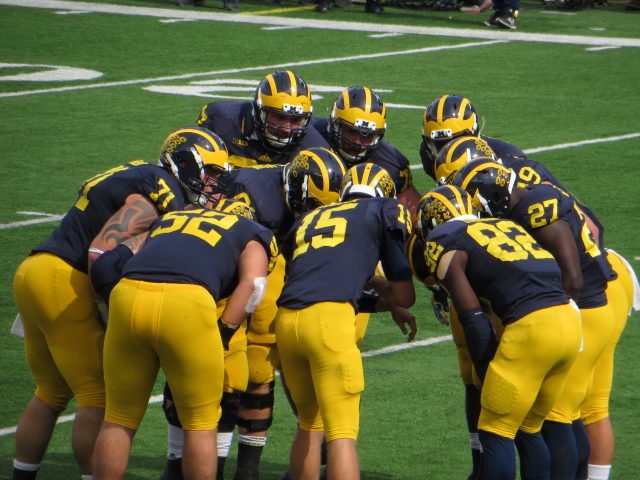
In a stunning development for college football, the University of Michigan’s esteemed football program has been plunged into turmoil as it faces a three-year probation period and additional penalties from the NCAA. These sanctions come as a result of violations committed during a COVID-19 dead period and the improper involvement of non-coaching staff members under the tenure of former head coach Jim Harbaugh.
The NCAA announced the punitive measures as part of an agreement reached between its enforcement staff, the University of Michigan, and individuals associated with the football program, including former staff members. Notably, one former coach chose not to participate in the agreement, leading to a separate consideration of their case by the Committee on Infractions. The coach’s identity remains undisclosed by the NCAA.
The infractions, which include a financial penalty and recruiting restrictions, stem from a series of violations during Harbaugh’s tenure. These violations were initially brought to light in January 2023, centering on unauthorized recruiting activities and the improper participation of staff members during the NCAA-mandated COVID-19 dead period.
Harbaugh, who had already served a three-game suspension imposed by the university at the start of the 2023 season, faced further scrutiny over his involvement in the infractions. Despite an attempt to resolve the matter with the NCAA in the summer of 2023, negotiations collapsed, leading to prolonged uncertainty for the Michigan football program.
The severity of the violations varied, with some categorized as Level II infractions—deemed to provide more than a minimal but less than a substantial competitive advantage. Additionally, a Level I violation, characterized by a severe breach of conduct threatening the integrity of college sports, was attributed to Harbaugh himself, who denied recollection of the Level II violations—a claim deemed misleading by the NCAA.
Amidst the legal wrangling and suspensions, Michigan’s on-field performance remained resilient, culminating in another Big Ten championship and the program’s first national title since 1997. However, the joy of victory was overshadowed by the cloud of NCAA sanctions and ongoing investigations.
Following the championship triumph, Harbaugh made a surprising move by departing from the Michigan program to assume the head coaching position with the Los Angeles Chargers. His departure triggered a significant staff turnover, with key personnel, including defensive coordinator Jesse Minter, following suit.
As the Michigan football program grapples with the fallout from the NCAA penalties, the departure of its iconic coach marks the end of an era, leaving behind a legacy tarnished by controversy and legal battles.











